Rausser College of Natural Resources would like to congratulate faculty members on their recent retirements from UC Berkeley. We thank them for their dedication to students and their fields, as well as for their service to the University.
Dennis Baldocchi
Department of Environmental Science, Policy, and Management
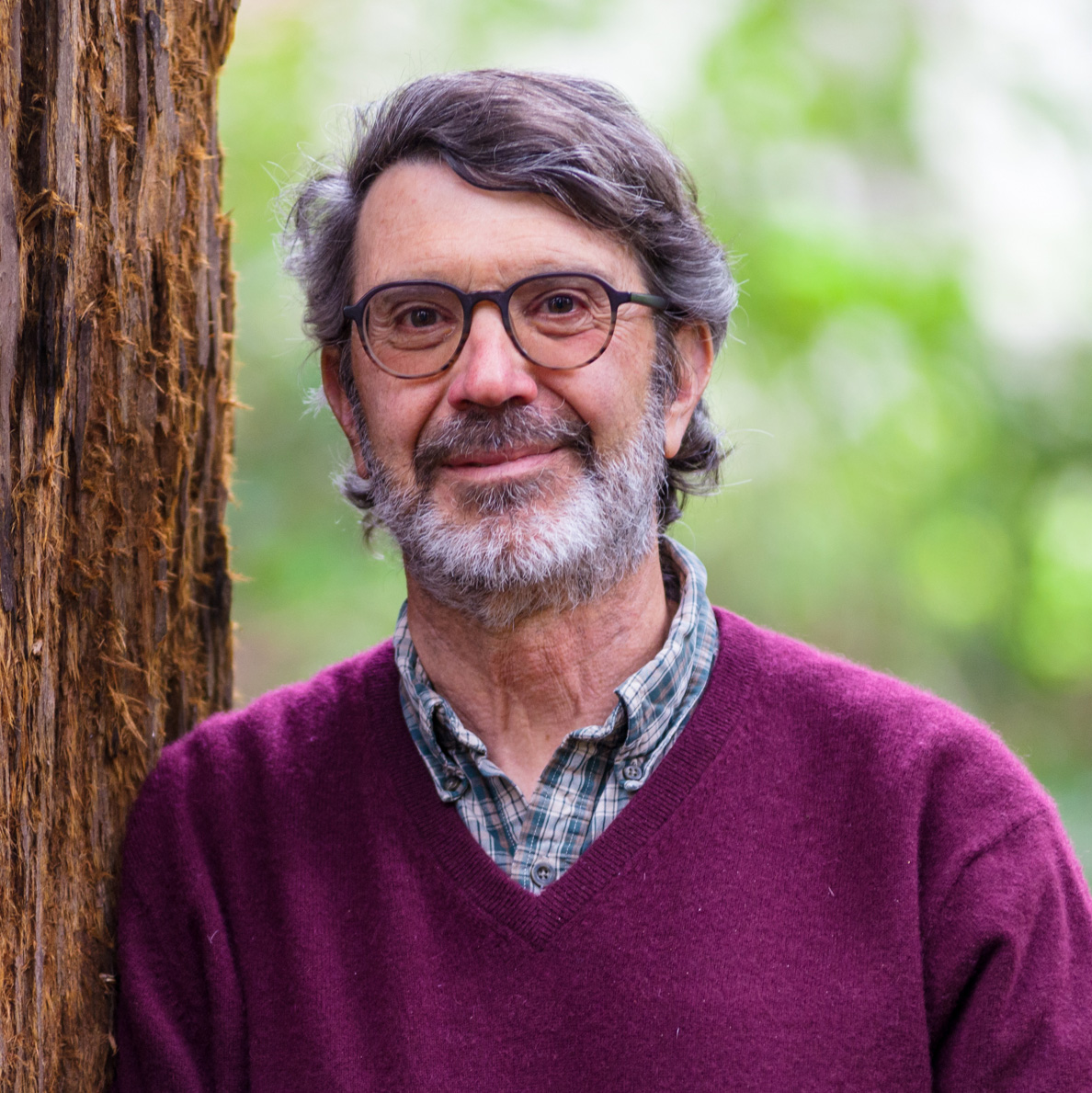
Dennis Baldocchi. Photo by Mathew Burciaga.
Dennis Baldocchi is known for his pioneering contributions to the field of biometeorology, the study of how climate and weather interact with living organisms. Early in his career, Baldocchi helped develop the eddy covariance methodology, which uses sensors and technology to measure the exchanges of carbon dioxide, water vapor, and energy between the biosphere and atmosphere without disturbing the ecosystem. Since its development, scientists across the globe have used the methodology to better understand ecosystem function and detect trends in climate, greenhouse gas emissions, and air pollution. Baldocchi employed this approach to study the carbon, water, and methane fluxes of numerous northern California ecosystems, including sites over crops and restored wetlands in the Sacramento-San Joaquin Delta—the region where he grew up. For two decades, Baldocchi also led and coordinated FLUXNET, an international “network of networks” of earth system scientists who employ the eddy covariance method in their research.
Baldocchi joined UC Berkeley in 1998 as a faculty member in the Department of Environmental Science, Policy, and Management (ESPM). He chaired ESPM’s Ecosystem Science Division from 2004 to 2007, and most recently served as the College’s Executive Associate Dean and Director of Agriculture and Natural Resource Programs. In addition to teaching undergraduate and graduate-level courses, Baldocchi leads the Berkeley Biometeorology Lab, which has trained dozens of graduate students and postdoctoral researchers who now study global ecosystem fluxes. A fellow of the American Geophysical Union (AGU) and American Meteorological Society (AMS), Baldocchi is a recipient of the Prince Sultan Bin Abdulaziz International Prize for Water, AGU’s Ambassador Award, AMS’ Verner E. Suomi Technology Medal, and an honorary doctorate from Wageningen University.
Lewis Feldman
Department of Plant and Microbial Biology

Lewis Feldman. Image courtesy of Lewis Feldman.
Plant biologist Lewis Feldman studies how the cells that comprise or surround a plant’s meristem influence root development. Specifically, Feldman’s lab explores how cells in the root cap and the quiescent center (QC), a group of mitotically inactive cells near a plant’s meristem, interact with auxin, a plant growth hormone, to influence the pattern of root development. Their research has shown that many of the QC’s activities and characteristics are related to redox status, which they are able to measure in real time at the cellular level using a redox-sensing green fluorescent protein. Feldman’s research has also explored the development of biosensors capable of reporting a plant’s heat stress to improve crop yields by allowing agricultural producers to more accurately adjust growing conditions.
Feldman joined UC Berkeley in 1976 as a postdoctoral fellow with the Miller Institute for Basic Research in Science and was offered a faculty position two years later. He has been recognized for outstanding mentorship of graduate student instructors and is a past recipient of UC Berkeley’s Distinguished Teaching Award. Feldman is a fellow of the California Academy of Sciences and a former vice chair of the Department of Plant and Microbial Biology. He served as Associate Dean of Academic Affairs for the College from 2006 until 2019, when he was named executive director of the UC Botanical Garden. He will retire from his role at the Botanical Garden at the start of 2026.
Mike Freeling
Department of Plant and Microbial Biology
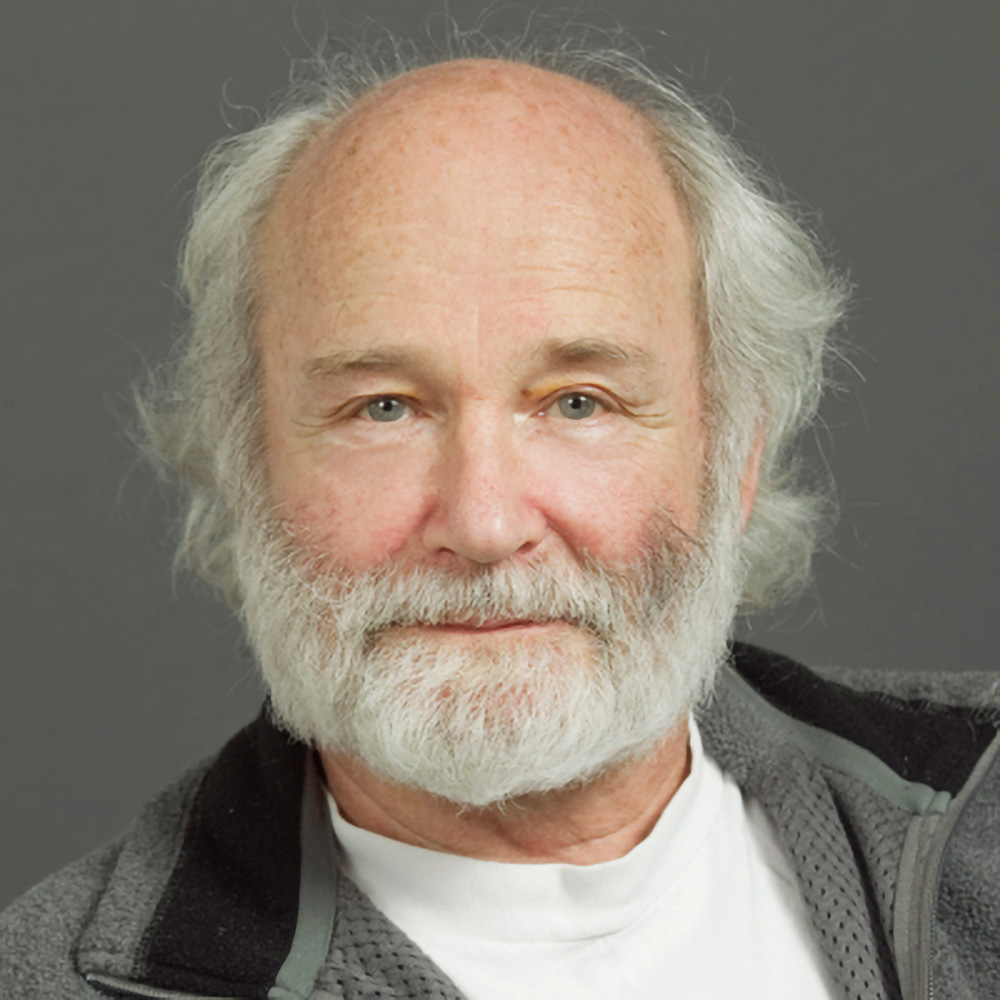
Mike Freeling.
Geneticist Mike Freeling is best known for his research on maize, a staple crop worldwide and a key model organism for plant biology studies. Much of Freeling’s early work focused on understanding gene regulation, anaerobic genes, and transposons in the crop. By 2003, he had shifted his focus to plant comparative genomics and the study of evolutionary trends. He worked closely with research scientist Damon Lisch, PhD ’95 Plant Biology, from 1995 to 2011 on studies relating to the epigenetics of gene silencing and grass transposon biology. In recognition of his contributions to maize research, Freeling was awarded the 2017 McClintock Prize for Plant Genetics and Genome Studies.
Freeling earned his PhD in 1973 from Indiana University and joined the faculty at UC Berkeley immediately afterward. He mentored nearly 80 PhD students and postdoctoral scholars during his tenure, and taught a popular “Genetics for Poets” course for decades. Freeling was named a Guggenheim Fellow in 1980 and was elected to the National Academy of Sciences in 1994. He transitioned
N. Louise Glass
Department of Plant and Microbial Biology
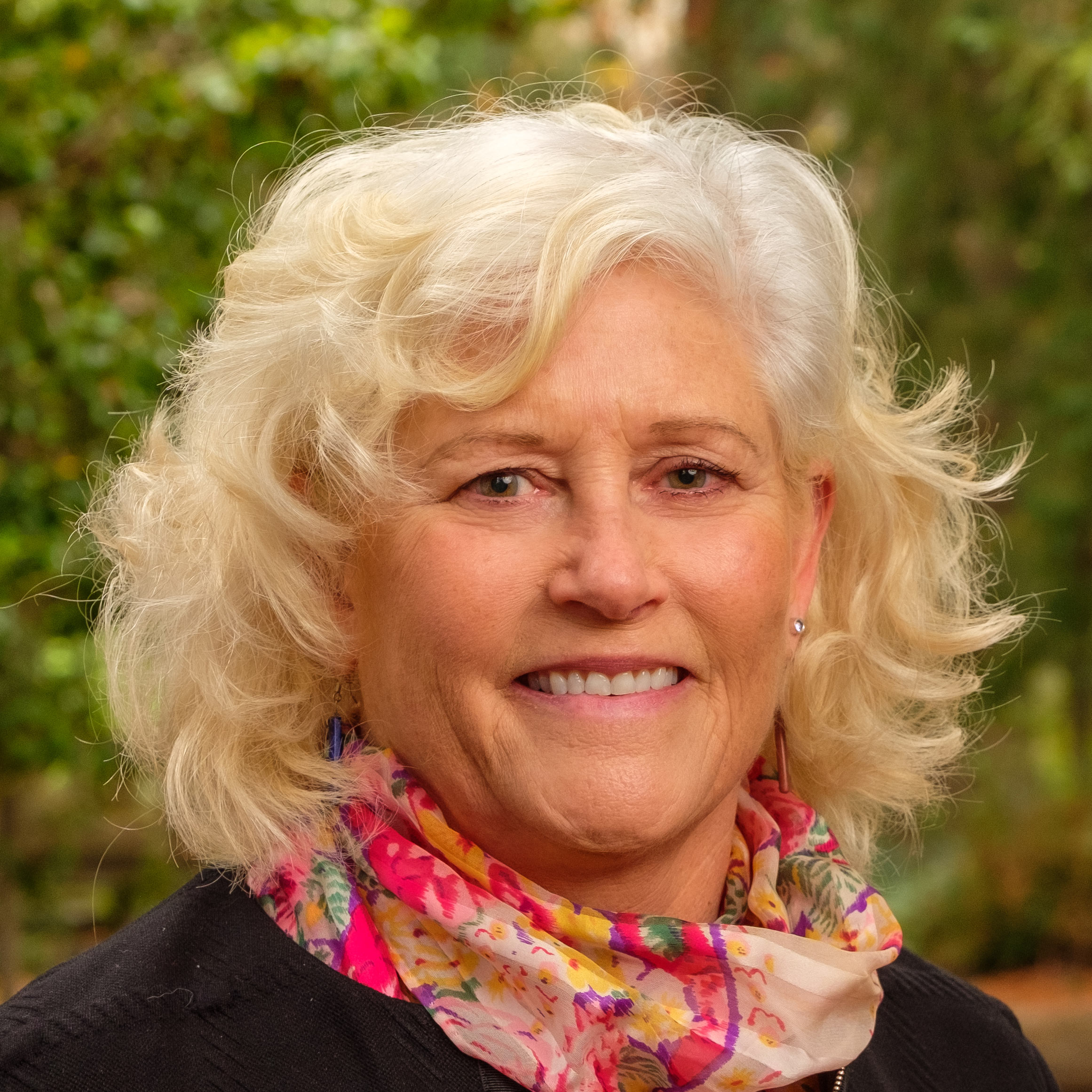
N. Louise Glass.
N. Louise Glass is a leading mycologist studying the molecular genetics of filamentous fungi who studies the mechanisms of cell-to-cell communication, signaling, and decomposition of plant biomass. She has led groundbreaking and foundational research on growth in filamentous fungi, leveraging approaches from fields like genomics and bioinformatics to understand how cells differentiate between themselves and foreign material during sexual and asexual phases of growth. As one of the first affiliates of the Energy and Biosciences Institute, Glass conducted early studies on how the fungus Neurospora crassa is capable of breaking down plant cell walls and biomass into sugars. That research has applications within the industrial production of bioproducts, primarily biofuels like bioethanol and enzyme or protein production.
A UC Davis PhD alum, Glass joined the Department of Plant and Microbial Biology (PMB) in 1999 after spending a decade on faculty at the University of British Columbia. She is a former associate chair and chair of PMB, and previously chaired UC Berkeley’s Graduate Group in Microbiology. From 2015 to 2019, Glass was the division director of Environmental Genomics and Systems Biology at the Lawrence Berkeley National Laboratory. She is a member of the National Academy of Sciences and a fellow of the American Association for the Advancement of Science, the American Academy of Microbiology, and the Mycological Society of America.
Dale Johnson
Department of Nutritional Sciences and Toxicology
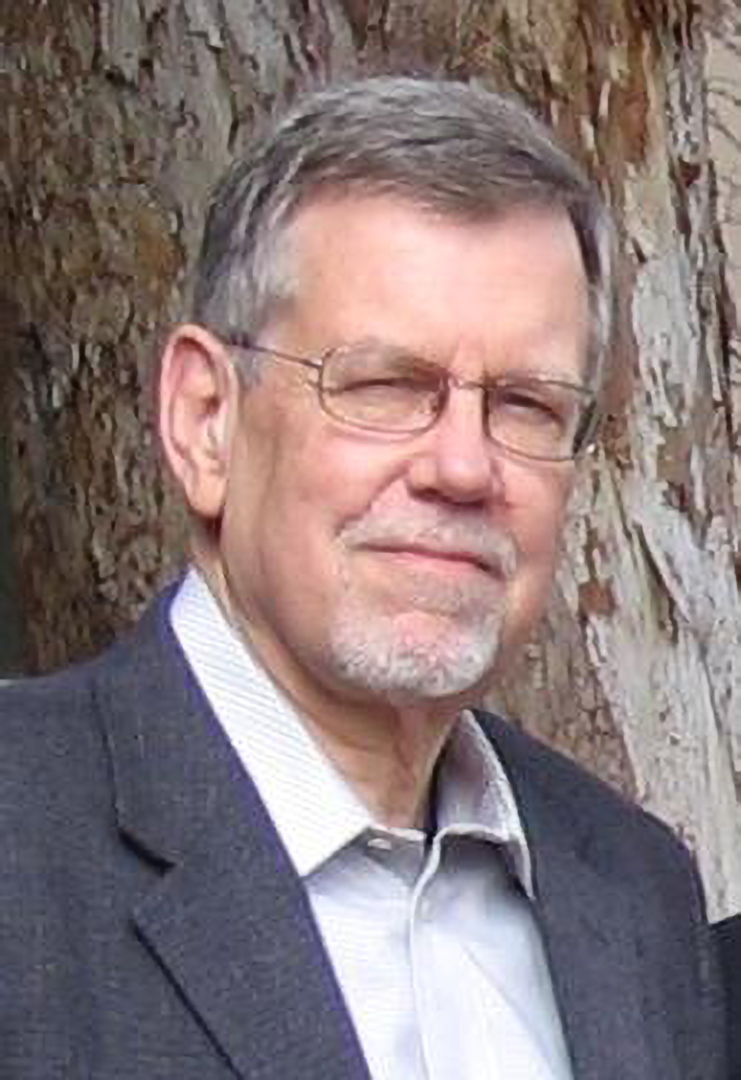
Dale Johnson.
Dale Johnson’s research focuses on computational systems toxicology and network pharmacology, fields that can be leveraged to better understand chemical-biological-gene-disease interactions, model the relationship between a molecule’s chemical structure and its biological activity, and analyze perturbations in systems biology pathways. With extensive experience in drug research and development, Johnson has guided the progression of over 100 compounds, including 16 that became marketed medicines and vaccines internationally. He has led diverse projects involving small molecules, proteins, and gene therapies, and serves as a consultant and advisor in the pharmacology industry.
Johnson earned a BS, PharmD, and PhD in Toxicology from the University of Michigan. At Berkeley, Johnson developed and taught the Computational Toxicology (NUSCTX 121) course, which has been offered by the Department of Nutritional Sciences and Toxicology since 2006. The inquiry-based course provides students the opportunity to address toxicity-related environmental, public health, or disease-oriented problems in innovative ways, utilizing tools, data, and concepts related to toxicology. By his count, Johnson has mentored over 160 students whose group projects have been selected for presentation at national scientific meetings.
Daniel Kammen
Professor, Energy and Resources Group
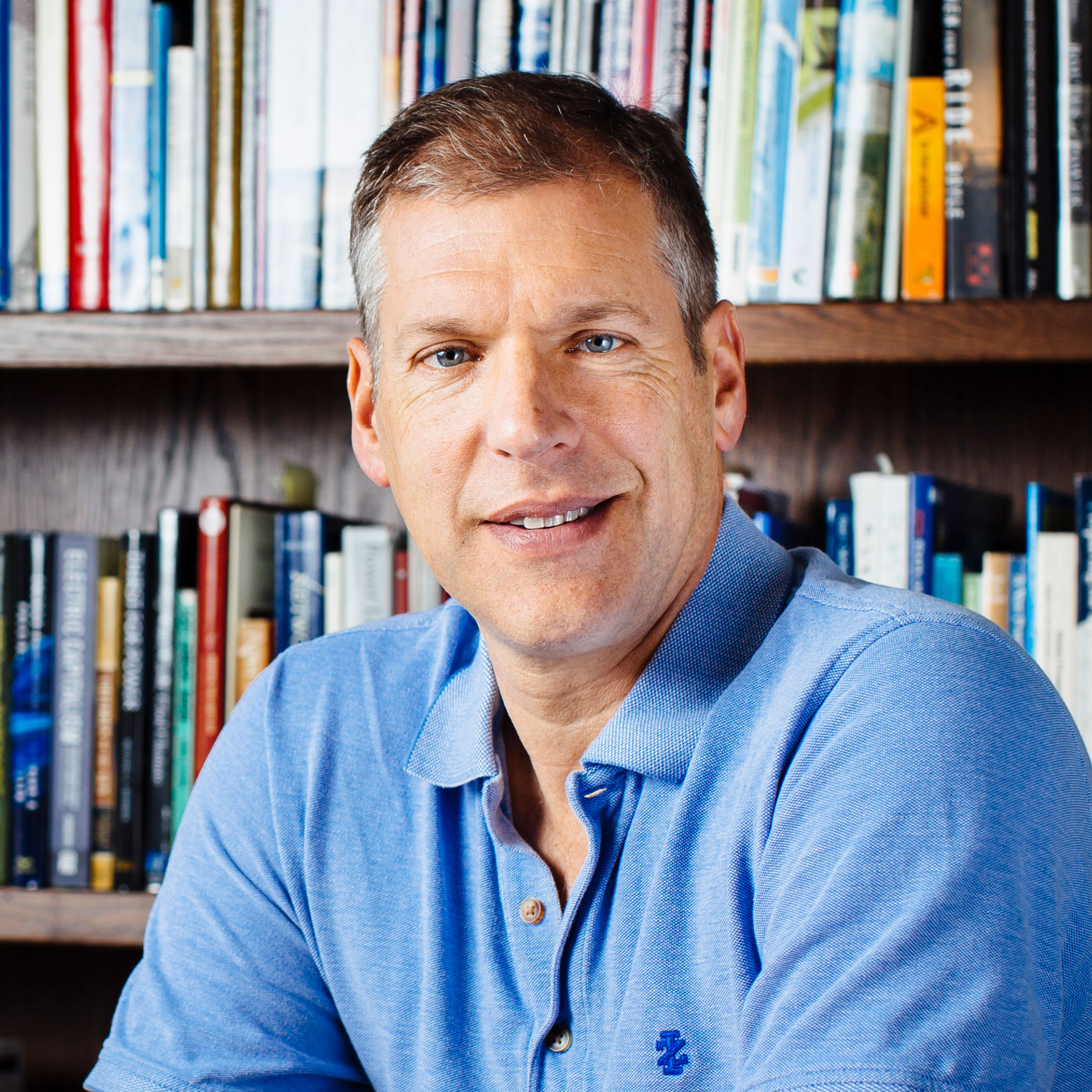
Daniel Kammen. Photo by Elena Zhukova.
Daniel Kammen has helped shape domestic and international policy during his nearly three-decade career at UC Berkeley. A physicist and climate scientist, Kammen directs the multidisciplinary Renewable and Applied Energy Lab, which focuses on designing, testing, and disseminating clean and sustainable energy systems across the globe. He has helped transform and decarbonize power systems at the local, regional, and global levels by supporting the development and deployment of new technologies like solar photovoltaics, battery energy storage systems, and microgrids. Kammen is also recognized for his studies on cookstoves, health, and gender in Kenya, as well as his efforts to translate research into policy. He models decarbonization at both the utility-level and the mini-grid level worldwide, with major research and policy programs in the US, China, and Africa. His research team is focused on innovation theory and how to translate research into policy.
Kammen joined the Energy and Resources Group (ERG) in 1998 and held parallel appointments at the Goldman School of Public Policy and the Department of Nuclear Engineering. He chaired ERG from 2017 to 2022 and helped establish the multidisciplinary Climate Equity and Environmental Justice Roundtable on campus. Kammen served as Senior Adviser for Energy, Climate, and Innovation at USAID during the Biden Administration; Science Envoy for the US Department of State during the Obama Administration; and was the First Chief Technical Specialist for Renewable Energy and Energy Efficiency at the World Bank. He also played a prominent role in the Nobel Prize-winning efforts of the United Nations’ Intergovernmental Panel on Climate Change. He was elected to the American Academy of Arts and Sciences in 2020 and the National Academy of Sciences in 2025. In the fall, Kammen will join Johns Hopkins University in Baltimore, Maryland, where he will become the Bloomberg Distinguished Professor of Energy and the Just Transition, and will play a core role in the interdisciplinary and cross-campus Ralph O’Connor Sustainable Energy Institute. He will remain connected to UC Berkeley as a Professor of the Graduate School in ERG.
Bill Tietje
Cooperative Extension Professor, Department of Environmental Science, Policy, and Management

Bill Tietje.
Bill Tietje has helped residents and landowners up and down California’s Central Coast manage their relationship with the region’s flora and fauna for over 30 years. Based in San Luis Obispo, Tietje has studied the ecology and habitat preferences of birds and small mammals, as well as the benefits that insectivorous bats, which roost in oak trees, may provide to vineyard ecosystems. Additionally, Tietje has examined the impact of climate and environmental change on small mammal populations. Tietje's outreach and extension efforts focus on connecting with agriculturalists and laypeople who wish to preserve the environmental resources and ecosystem services of working lands.
As an extension specialist with UC Agriculture and Natural Resources (UCANR), Tietje has hosted workshops, authored science-based publications and newsletter articles, and responded to numerous questions from the public on oak care and management. He led the development of a UCANR publication describing the vast Central Coast bioregion, providing readers with an engaging and accessible overview that invites independent study and exploration, and highlights the need for land conservation.
